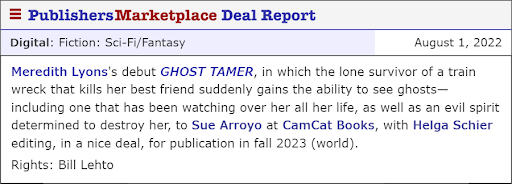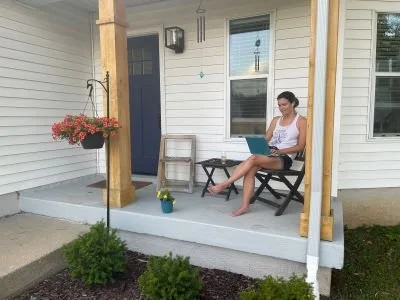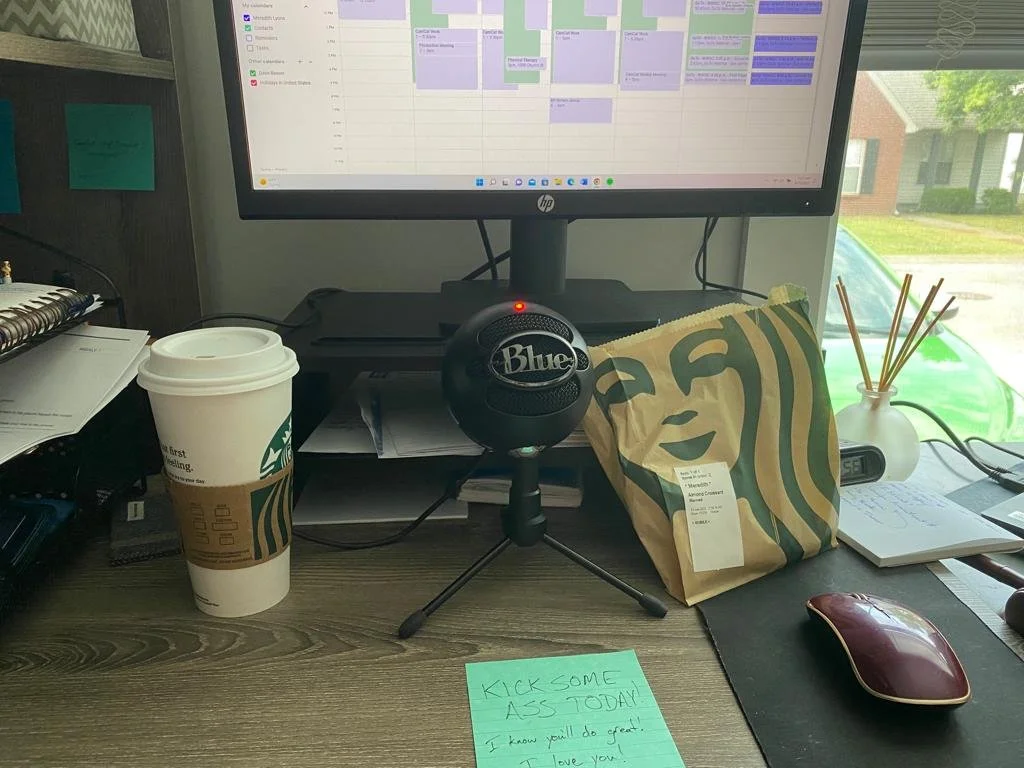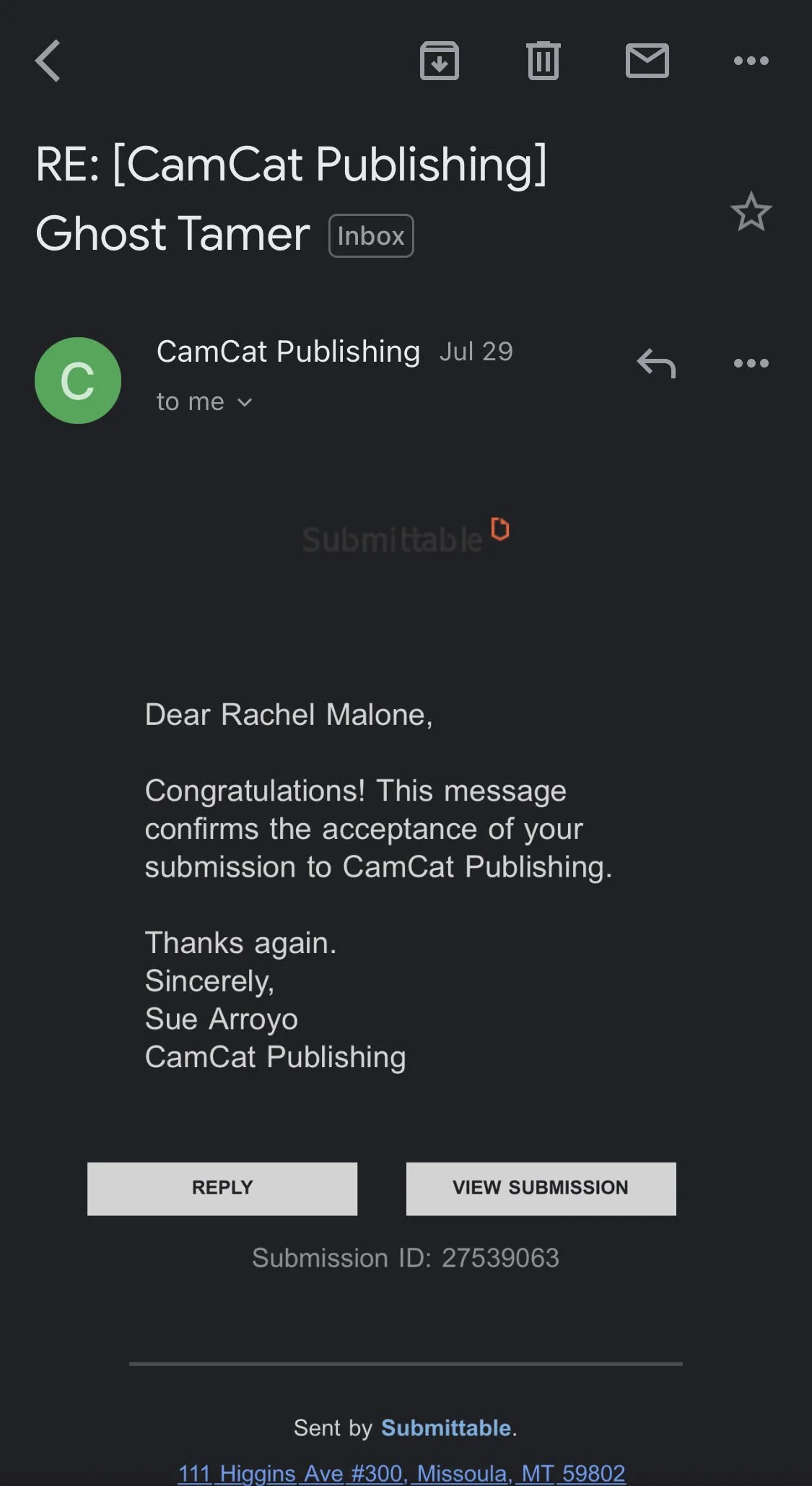The road to publication wasn't overnight.
I recently got some very exciting news that I shared on social media (as you do) and got a lot of open-mouthed smiley reactions (as well as some hearts and likes). I’m being published!
To anyone who reads this blog semi-regularly, it might not come as an enormous shock (although, it’s hard to get in there, so it’s always kind of a happy surprise) but I suspect a few people might pop over to read this one who haven’t been all that interested in my weekly updates. (Which I say without a hint of shade, because you have your own stuff and my stuff isn’t fascinating to all people every week.) So, I write this with a goal to encourage people who are trying to submit, as well as just to let the curious know ‘what had happened.’
I’ve written all my life. My ‘first’ novel was completed when I was thirteen. It was 636 pages, hand-written on a mishmash of college ruled paper, and still exists in a three ring binder in my closet. It was a YA Historical Fiction (western) called Sunlight in a Shadow. Some pages are barely legible now. I started high school right after that and things got busy. I still wrote things, and became a yearbook section editor when I was a senior.
When I went to college, I majored in Theatre. My parents, who have always been very supportive of my crazy endeavors (although they weren’t thrilled about me boxing) hinted that maaaaaaybe it would behoove me to get another degree also? Double Majoring isn’t that much extra time, depending on how you do it, because all of the (stupid) core requirements overlap. I majored in Mass Communication because, hey, writing is cool!
Then I did theatre for a while. I did martial arts for a while. I did fitness for a while. I still wrote, but it was secondary. Articles for Examiner.com (remember them?) and CBS Local. Sporadic blog posts here and there. I eventually challenged myself to make the blog a weekly thing. I took a writing class when theatre was starting to take more than it was giving and I needed a break. I started writing a lot. Even considered graduate school for creative writing to the point where I had a list of schools and asked Dean where he might be willing (and unwilling) to move.
The move to Nashville got accelerated and then there were a ton of real life events to deal with. You probably already know about the fire, and my grandma passed shortly after. She left me some money, which I hadn’t expected. To do something I wanted, but didn’t necessarily need to do. I went to my first Writer’s Conference in 2019 in Kentucky. I bought all the things: a hotel right by the conference, a few workshops, the pitch session with an agent.
I got feedback for the first time and learned how vital feedback is. I had been writing a book in a vacuum that wasn’t ready, but I pitched it. I got invaluable, honest critique on those first ten pages. I met some people. I learned a ton of stuff. I went back to Nashville determined to find other writers.
Fast forward. I’m now in two writers groups. They’re (mostly) online because in 2020, we all went online, although I’ve made friends that I do connect with in person. I put aside that first book I had pitched. I worked on it all through 2020, it taught me how to write, maybe I’ll pick it up again, maybe I won’t, but I started working on other things. I tried to write a short story, this still eludes me. When I write fiction, apparently I write a novel. The ‘short’ story I tried to write ended up being. 14,600 words long. The feedback that I got was that I needed to flesh things out more because too much happened in that short of a time. I left it alone and started Ghost Tamer.
During this time, I started working toward the eventual goal of publishing. Took some classes, built up my social media platform, etc. I also started working in the publishing industry. Seeing things from the other side was a great experience. That’s something I never got to do much of while acting. Although I always wanted to.
I had a couple of feedback sessions on Ghost Tamer after full reads and put it aside to dust off later. I launched into a new project with a fervor and slammed out two 95,000+ word novels in five months. This planned trilogy was my new passion project. I worked hard on the first one, had several beta readers give me read critique sessions, got it ready, registered for a conference and several agent pitches just to force myself to get the boring stuff done. (The synopsis, the one sentence pitch, the one paragraph pitch, the full pitch, the comps, etc.)
I also did one of those Twitter pitch events. Now, I don’t know how successful those are at getting anyone representation, however, they are great at forcing you to really identify your story elements as you have to condense you pitch into a tweet several different ways. They’re also fun and if you need to ‘grow your platform’ on Twitter, they’re a great way to find other writers to do mutual follows. I have also—very occasionally—gotten some good advice on Twitter.
When I started prepping for pitching/querying my fantasy novel, I discovered that when it comes to fantasy, agents have very particular tastes. It’s a saturated market and often something has to fit a very specific mold for them to feel that they can sell it. I complied a list, but it wasn’t nearly as extensive as the list my friends had for crime/mystery/thriller novels or women’s fiction. When I pitched, I looked carefully at the agents pitching. I did my homework. I picked the ones I thought would really like my work. I tailored my pitch to them specifically. I got excited about it. I had my query looked at by two professionals. I practiced every single pitch online with my writers group. I was over-prepared.
My very first pitch of my very first day, the agent said, “Aw, great pitch! I don’t like fae.” I was thrown, but thankfully, had my list of backup questions there to ask him to fill the time. I did get some good information, so it wasn’t a waste, but I left the pitch disappointed. I had researched. I had avoided people who said they weren’t into fae. In fact, I had picked that agent as a replacement for an agent I had originally picked who fit every other category of my MS except … she didn’t want fae stories for now.
I didn’t want this to happen again. I had five other agents to pitch.
What about that Ghost Tamer book that I hadn’t looked at in six months? May as well pitch that rather than nothing at all. So I dusted off my Ghost Tamer pitch.
Must have Starbucks before online pitching.
Two agents later, I got another one. “That was great, but I don’t really do fae.”
“What about ghosts? Do you like ghosts?”
“Yeah! Pitch me that!”
I pitched Ghost Tamer. She asked for the first fifty pages. I had some requests for the other book too, yes. I still have one full request out, but I had forgotten about Ghost Tamer. I pulled it out and dusted off those first fifty pages.
It was better than I had remembered.
I eventually got a rejection from that agent, but it was a rejection with actionable feedback. So I actioned.
My fantasy was only getting form rejections. So this was something I could sink my teeth into.
Around that time my own press was winning a ton of awards. Our books were killing it. They were getting great reviews. We were revamping paperback covers with ‘Award Winning Author’ and some nice industry reviews. I thought, “Well if we’re accepting unagentented manuscripts. other indies must also be.” So I looked.
And I did find some good indie presses. But:
They had crappy covers. Or
They didn’t accept unagented submissions. OR
They had no reviews or awards for their books. OR
The author was having to pay some or part of the publication fee.
I want an agent.
It’s the only way to get into some of those prestigious houses. But the market I want to break into is very saturated. There are even some agent houses that I’ve looked at that explicitly say “do not contact us unless you have already been traditionally published.” They want someone else to have taken a chance on you before they’re willing to.
My house was starting to look pretty awesome.
The only issue was: I work there.
There are rules established that our publisher laid out (and followed herself) in the event that any of the team wanted to submit their own work.
No one can know who you are. In order for it to be an unbiased submission, you must submit under a fake name. You can publish under your own name if you like, but you have to be anonymous at first. If CamCat decides to buy you, then you can reveal yourself.
That’s pretty much the only rule. You have to tell the Editorial director so that she will be able to unmask you if acquisitions decides to acquire you, but she will not read your submission.
So, I created a burner Submittable account, a fake name with a fake bio, history, email, the works. Creating an entirely new person was a little bit fun. Still, it was the most nerve-wracking submission of my life.
For one thing, one of the people I most admired, our editorial director, who had mentored me through my growth as publishing coordinator, she knew that it was mine! No hiding it, that was mine. Thankfully the person assigned to my initial FML (first middle last) read, thought it had promise and send it on fairly quickly. I didn’t have to dread the complete rejection. However, it sat at the next stage for a while.
It’s weird, getting to watch your own work go through the back end. Not a lot of people get this privilege. In a way, it was a gift, but there were other that I would probably had spared myself from. There is a certain freedom in sending it off and letting it fly. It’s not that easy to watch it go through the entire obstacle course.
I will say that when I was unmasked after they did decide to buy it was one of the happiest feelings ever. I knew my book was in good hands because I’d watched countless other books pass through those hands. I’m excited to experience the editorial process! I’m looking forward to seeing how my book is going to change and grow.
I’m exciting to be publishing my first book. First.





